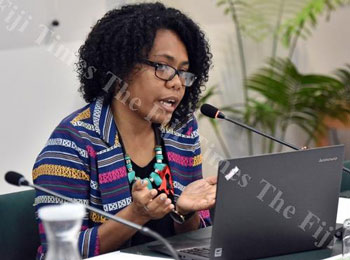
SUVA (Fiji Times/Pacific Media Watch): Freedom of information is fundamental to a community's ability to demonstrate free and informed consent in a decision-making process, particularly when addressing environmental sustainability.
Bua Urban Youth Network (BUY) representative Vani Catanasiga made this comment during the group's submissions to the Parliamentary Standing Committee on Justice, Law and Human Rights regarding the Information Bill 2016 in Suva this month.
According to a Fiji Times article, Catanasiga said: "We are better known to many as an advocacy network and our main message has been the need for government to respect and inculcate the principle of free, prior and informed consent (FPIC) in short, in all of their engagements with rural communities, indigenous and non-indigenous alike."
"BUY wishes to express its disagreement with aspects of Division 2, Clause 12 which outlines that public agencies may impose a charge for the expenses involved in making the information available."
The news article expressed Catanasiga's concern that infomation sholud be made free of charge as a fee would discourage the public from accessing information.
Catanasiga highlighted that information also be made available in the iTaukei and Hindi languages. She particularly referred to Clause 13, which specified the variety of ways in which the public could receive the requested information.
Areas of improvement
The Office of the UN High Commissioner for Human Rights also suggested areas of improvement in the Information Bill 2016 to the Parliamentary Standing Committee on Justice, Law and Human Rights.
The Fiji Times reported that deputy regional representative Catherine Phuong said particular areas for improvement would be under Clause 9, 20 and 21 which referred to exemptions and expanding areas for accessing information.
Phuong said the lists of exemptions included in the Bill appeared to be very broad.
The article expressed Phuong's other concerns that the Bill should include scrutiny of government activity, promote public participation in decision-making and grant wide ministerial discretion to exempt public agencies, in consultation with the commission under Clause 21.
According to the Fiji Times, Phuong said: "This lack of transparency over which public agencies are to be excluded from the Act is particularly concerning, as provision appears to lack criteria for decision. No public bodies should be completely excluded from the scope of law."
This work is licensed under a Creative Commons Attribution-NonCommercial 3




